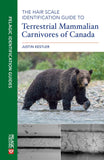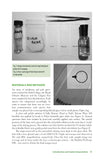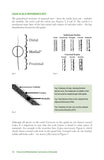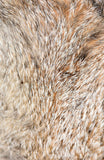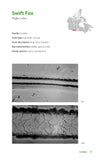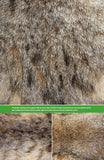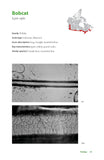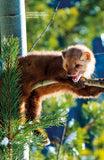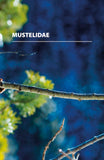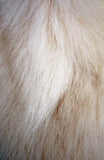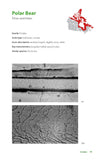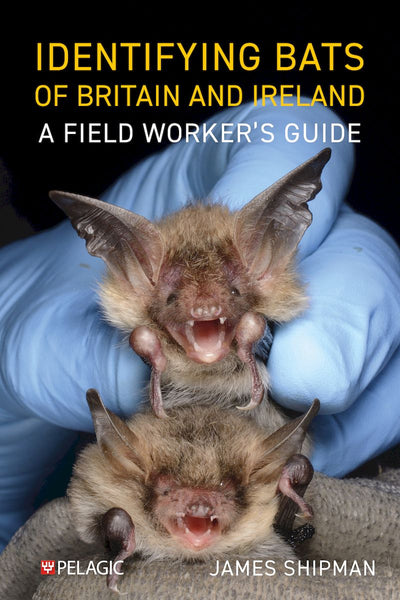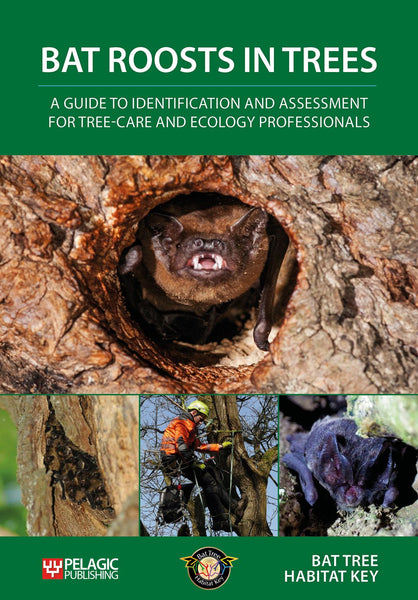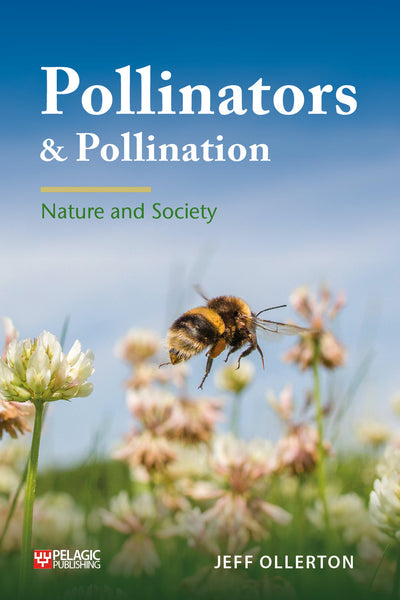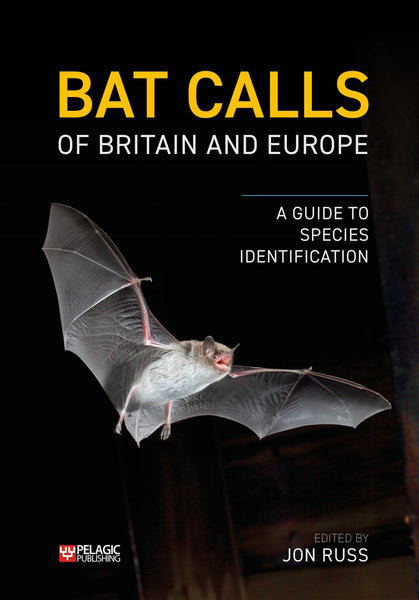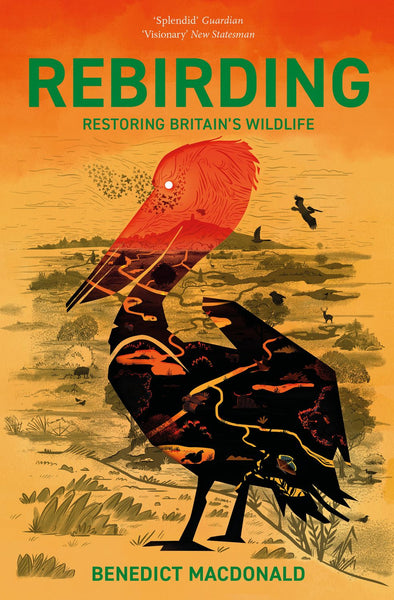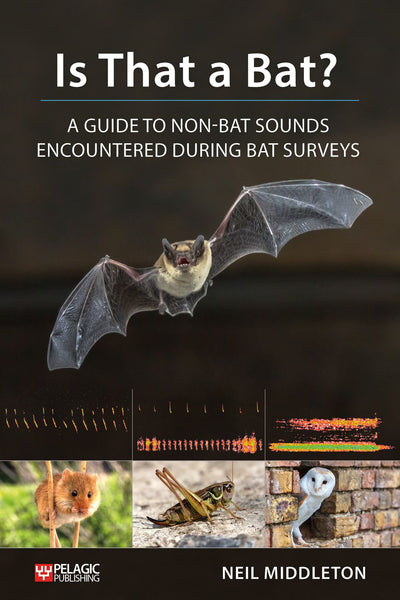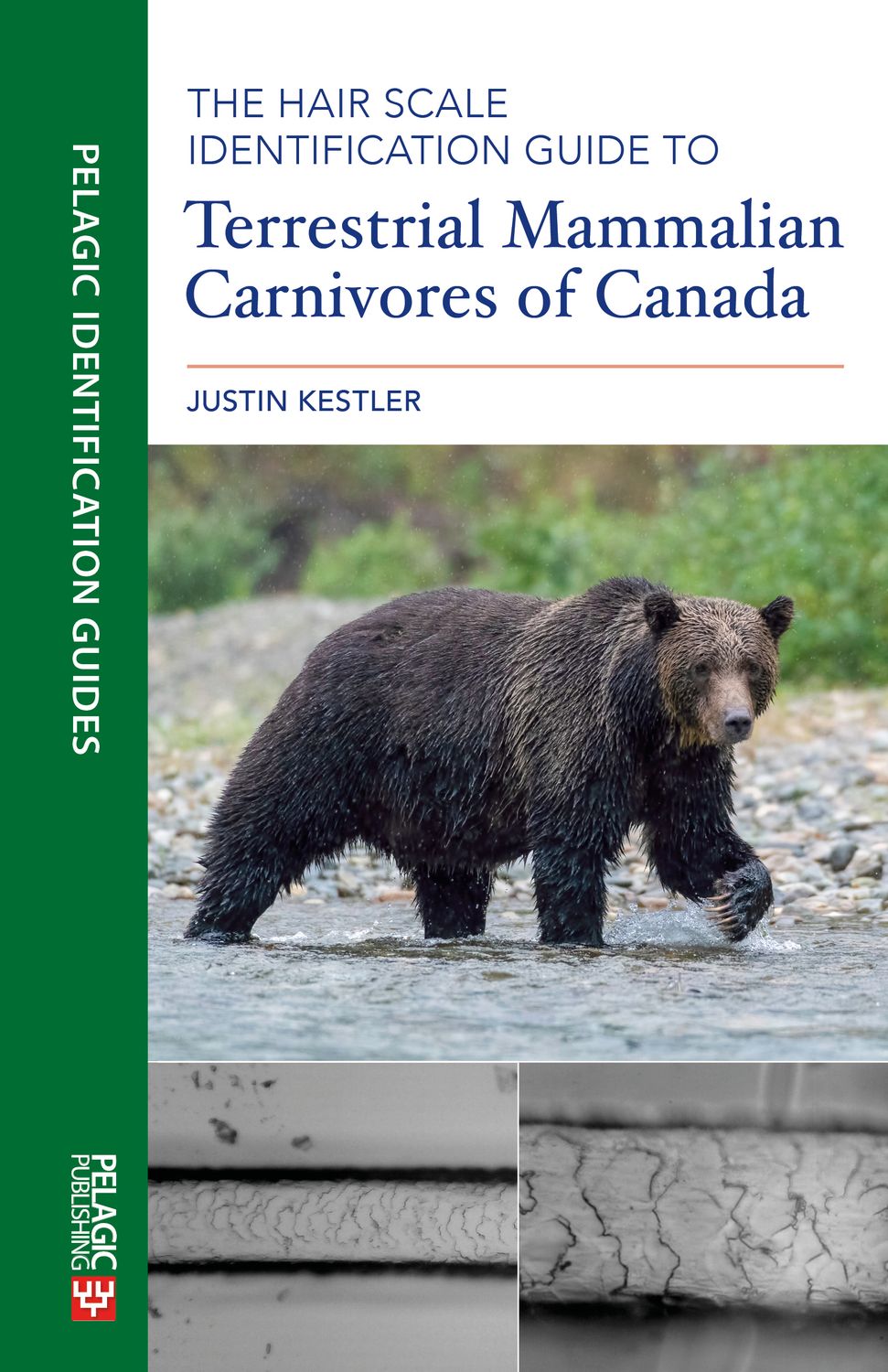
The Hair Scale Identification Guide to Terrestrial Mammalian Carnivores of Canada
- The only hair scale identification guide to cover all 25 mammalian carnivores found in Canada.
- Featuring superb images of hair scale impressions at two magnification levels, also describing the sampling techniques used.
- Includes range maps and key identification characteristics for all species represented.
- This handy identification guide to the hairs of carnivores found in Canada will be a valuable reference source for wildlife managers, biologists, and naturalists. The book is attractively presented with beautiful colour images of fur pelts accompanied by microphotographs at two resolutions that spectacularly illustrate the fine hair-scale impressions that will aid in identifying the species of carnivorous mammals.
—Burton K. Lim, Assistant Curator of Mammalogy, Royal Ontario Museum
- Canada
- carnivores
- identification
- mammals
Description
Mammalian predators are keystone species in any ecosystem. But many are elusive by nature and have territories that cover large areas of land, which makes them challenging to monitor. When tracks and signs prove difficult to interpret or are non-existent, hair samples recovered from the field offer a fantastic resource – one that is often overlooked.
The Hair Scale Identification Guide to Terrestrial Mammalian Carnivores of Canada provides a fully illustrated, up-to-date hair scale reference for all 25 of the terrestrial carnivorous mammals of Canada. From the tiny least weasel (Mustela nivalis) to the giant polar bear (Ursus maritimus), unique traits – as well as tricky similarities – can clearly be observed through hair scale patterns magnified at the medial portion of the hair impression. These scale patterns aid in species identification when hair is the only possible evidence available.
This guide also outlines hair impression techniques for samples found in the field, assisting ecologists and technicians with wildlife monitoring studies on predatory mammals where additional identification is required. Including range maps and key identification characteristics for all species represented, as well as superb images of hair scale impressions at two magnification levels, this book is a comprehensive tool for animal hair ID.
Table of Contents
Acknowledgements
Introduction and Guide Interpretation
- Materials and Methods
- Hair Scale Reference Key
- Winter White Colour Phases
- Undersides: Colour Differences in Guard Hairs
- Colour Morphs and Regional Variations
CANIDAE
Swift Fox
Arctic Fox
Grey Fox
Red Fox
Coyote
Grey Wolf
FELIDAE
Bobcat
Canada Lynx
Mountain Lion
MEPHITIDAE
Western Spotted Skunk
Striped Skunk
MUSTELIDAE
Least Weasel
Short-Tailed Weasel
Long-Tailed Weasel
American Mink
Black-Footed Ferret
American Marten
Fisher
American Badger
Northern River Otter
Wolverine
PROCYONIDAE
Raccoon
URSIDAE
Black Bear
Grizzly Bear
Polar Bear
References
Appendix 1: A Summary of Scale Types
Appendix 2: Patterns and Comparisons
Reviews
- This handy identification guide to the hairs of carnivores found in Canada will be a valuable reference source for wildlife managers, biologists, and naturalists. The book is attractively presented with beautiful colour images of fur pelts accompanied by microphotographs at two resolutions that spectacularly illustrate the fine hair-scale impressions that will aid in identifying the species of carnivorous mammals.
—Burton K. Lim, Assistant Curator of Mammalogy, Royal Ontario Museum
About the Author
Justin Kestler is a wildlife technician and outdoor educator. He graduated from Sault College’s School of Natural Environment and earned a communications degree from the University of Toronto. He’s been involved in various wildlife monitoring projects and worked as a field technician for Natural Resources Canada, McMaster University and the University of Alberta.Bibliographic Information
 80 pages
80 pages - 43 col photos, 61 b/w photos, 7 figures
- BISAC SCI070030, NAT046000, 4.0.2.0.0.0.0
- BIC PSVW7, RNKH1, 1KBC






